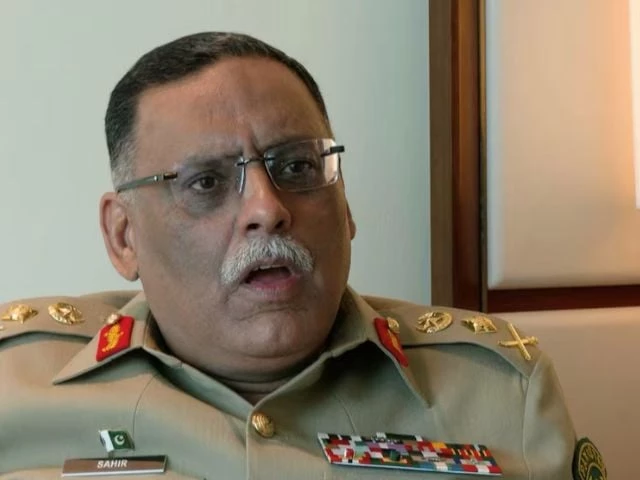Kashmir settlement mandatory: CJCSC
General Mirza says India's weaponisation of water violates international law

Chairman Joint Chiefs of Staff Committee (CJCSC) General Sahir Shamshad Mirza has called for the urgent resolution of the Kashmir dispute between Pakistan and India, warning that continued tensions between the neighbours threatened regional peace and security.
Representing Pakistan at the 22nd Shangri-La Dialogue 2025 in Singapore, General Mirza stressed the need for active and effective dialogue frameworksbilateral, regional, and globalto prevent conflicts rather than responding to them after escalation.
"The resolution of the Kashmir dispute in line with UN Security Council resolutions is essential for lasting peace in South Asia," General Mirza said, describing the conflict as the "root cause" of enduring hostility between Pakistan and India.
The CJCSC criticised India's recent actions regarding water flow management, accusing New Delhi of attempting to weaponise the shared water resources. "India's use of water as a weapon of war is a clear violation of international law," he said.
"Any attempt to block or divert Pakistan's waters will be considered an act of war, in accordance with the Pakistan National Security Committee's policy," he warned. He reaffirmed that Pakistan was open to durable peace with India, but such a peace must be based on dignity, equality, and mutual respect.
General Mirza expressed concern over the absence of reliable crisis management structures, noting that the failure to act early often prevented the international community from intervening before tensions spiralled.
"The situation since the Pahalgam incident is endangering regional development. We need mutual restraint, recognition of red lines, and equilibrium to ensure durable peace," he said. He called on the world powers to help restore a formal dialogue mechanism between Pakistan and India, warning that the current vacuum increases the risk of miscalculation and escalation.




















COMMENTS
Comments are moderated and generally will be posted if they are on-topic and not abusive.
For more information, please see our Comments FAQ